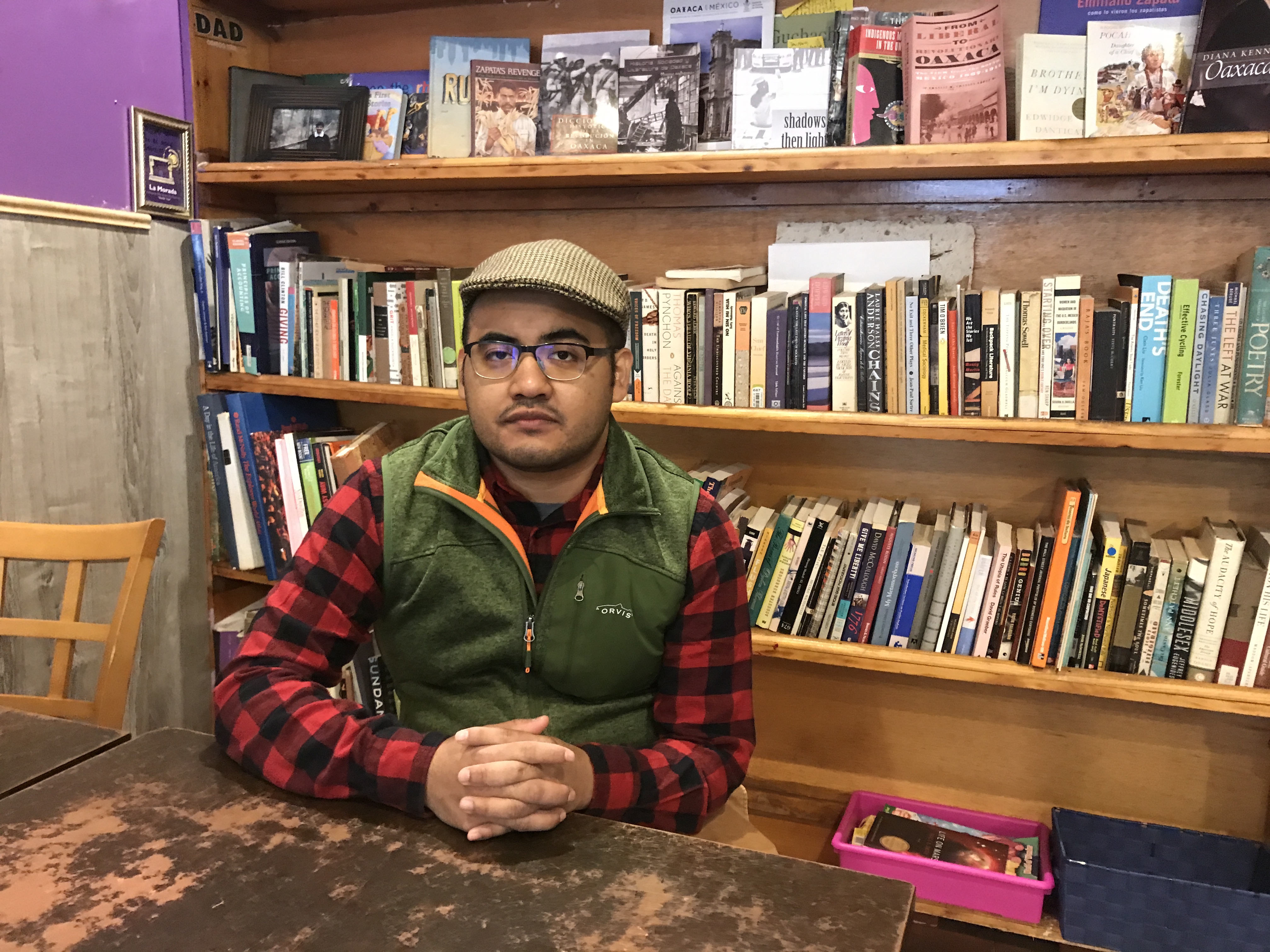Amid the Trump Administration’s aggressive moves to curb asylum claims made in the United States, a federal judge will decide the asylum case of a prominent leader of Mott Haven’s immigrant community. The decision to deport Marco Saavedra or not could have a ripple effect for the cases of other immigrants’ rights advocates.
Saavedra, 29, will appear in Immigration Court on November 7th in Manhattan for the final hearing of his case, which has dragged on for more than six years. He is a member of the “Dream 9”, the group of nine undocumented activists who left the US voluntarily and returned in the summer of 2013 to the southern border. Their goal was—and continues to be—for each to adjust their respective immigration status on this side of the border.
Saavedra is more than an activist. He’s the manager of La Morada, the acclaimed decade-old family restaurant in Mott Haven where the local immigrant community and lovers of Oaxacan cuisine meet. The closure of his case, however, will arrive in a moment of uncertainty for the business. As gentrification in the neighborhood intensifies and rents rise, his family says that they are considering moving to another location next summer.
The Saavedra family emigrated from Mexico City in 1993, but is originally from the Mixteca Baja region in the southern Mexican state of Oaxaca. Marco explains that because they are indigenous and Pentecostal, they lived like “second-class citizens.”
Now, to obtain asylum in the country where he has lived since he was three, he will have to show that he fears for his life in Mexico because of his race, religion, nationality, political opinion, or for being a member of an endangered social group. He must also show why the Mexican authorities are incapable of protecting him, regardless of where he might move in Mexico.
Saavedra argues that his work as an advocate of immigrants’ rights qualifies as an expression of political opinion, and that if the US government deports him, he runs a high risk of torture and abuse at the hands of the Mexican government. Several experts in human rights will testify in favor of this argument in court.
Among them is Lynn Stephen, Phillip H. Knight Chair and Distinguished Professor of Anthropology at the University of Oregon and immediate past president of the Latin American Studies Association. “Several Mexican migrants’ rights activists who worked with the [migrant] caravans have been detained” by the administration of Mexican President Andrés Manuel López Obrador, Stephen explained to the Mott Haven Herald over the phone.
“If [a migrants’ rights advocate] is detained and imprisoned, sentenced or not, the chances of being tortured or abused are quite significant,” she continued. She also reasoned that members of organized crime could target Saavedra because migrant defense “cuts into their business model” by interfering with human trafficking.
Stephen also cited a group of human rights organizations based in Mexico that, in April of this year, denounced the “almost universal” impunity with which the Mexican authorities torture and rape their detainees. They reported that the Special Prosecutor’s Office tasked with investigating 8,335 cases of torture last year handed out only 17 indictments.
Saavedra’s case also has political support. Melissa Mark-Viverito, ex-Speaker of City Council, explained in a statement submitted to the court that she would “gladly vouch for him to receive asylum” because she has known him since 2013 when she visited La Morada for the first time. Viverito is currently a candidate for U.S. Congress in NY-15, the district that covers Mott Haven.
Saavedra has also sought the support of New York Mayor Bill de Blasio and Jumaane Williams, Public Advocate of New York City, for his final hearing. Neither has yet made publicly committed to doing so.
If he loses, Saavedra can appeal the decision. If so, it is likely he will spend years more fighting his case. But despite the uncertainty, he maintains his optimism.
“Winning asylum on grounds of political expression would be a big achievement for us—it would establish a legal precedent for other human rights activists to fight and win cases like mine,” he reflected. “So we’re mindful of the broader context.”
Roman Gressier translated this report from the original Spanish to English. He is a freelance multilingual journalist reporting from the South Bronx. He is also a student at the Newmark School of Journalism at CUNY and a former applied research fellow at the Vera Institute of Justice. Readers’ comments are welcome over Twitter or by email at roman.gressier@journalism.cuny.edu.

